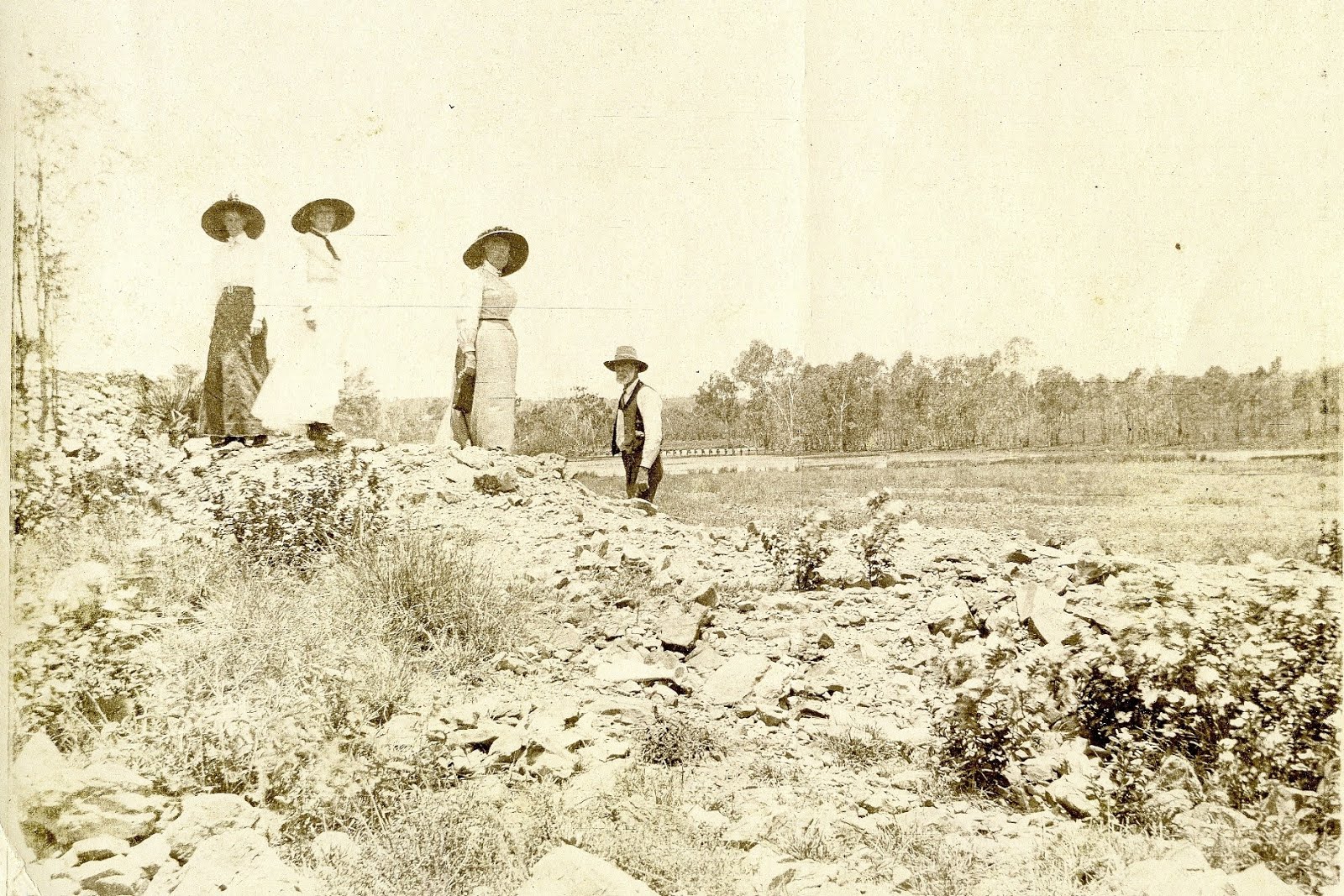My great, grandfather, John Clark in the centre with grandfather Bell and my grandmother. Circa, 1915.
In this picture, John Clark is an old man; a very old man in those times. Clark was ninety-five when he died in 1917. At this time of his life in 1915, Clark was blind and was cared for by his daughters. I wonder as he poses for the camera, if he is reflecting on his life; a life forged by hardship and heart break but also blessed with huge monetary reward.
From humble and tragic beginnings in Scotland, Clark was placed in the care of a tyrannical uncle at a young age. Unable to bear the harsh treatment any longer, he ran away at the age of twelve to make his own way in life.
Clark never received a formal education and he remained illiterate throughout his life. Clark's education instead, came from the school of 'you have to fight for everything'. From humble beginnings, John Henry Clark would become one of the largest land owners in Australia. His land holdings were so vast that they would have covered nearly seven per cent of his former homeland, Scotland.
But it all came at a huge price; his first wife and their child died tragically of disease as did two of his children by his second marriage.
He was renowned a tough and wily man; he had to be. But when a lot of European settlers were taking Aboriginal land with acts of genocide, Clark worked in with the local Aborigines. I also think, he was a man ahead of his time.
Clark would kill cattle for the local Aborigines to eat and he employed them on the cattle stations. One of Clark's most trusted employees was an Aboriginal man named Roddy Clark. Roddy is apparently buried next to Clark. One of his grandchildren was even delivered by Aboriginal mid-wives at Lornesleigh Station.
As for vices and dislikes? Clark did like whiskey but he was never a heavy drinker. He did have an immense dislike of Catholics. Why, I do not know. Clark disliked Catholics so much that he refused to attend my grandmother's wedding to my grandfather, Richard Bell.
As John Clark had only two surviving daughters, he left all of his land holdings to them. No son in laws were put in charge which caused friction within the family. I haven't found any other women of that time operating a large pastoral company in Australia. Yes, he was a man ahead of his time.
A mountain is named after him on one of the former family properties but I think John Clark should be memorialised more; after all, if it hadn't have been for people like him busting their guts, Australia would not have become the prosperous country it is today.



